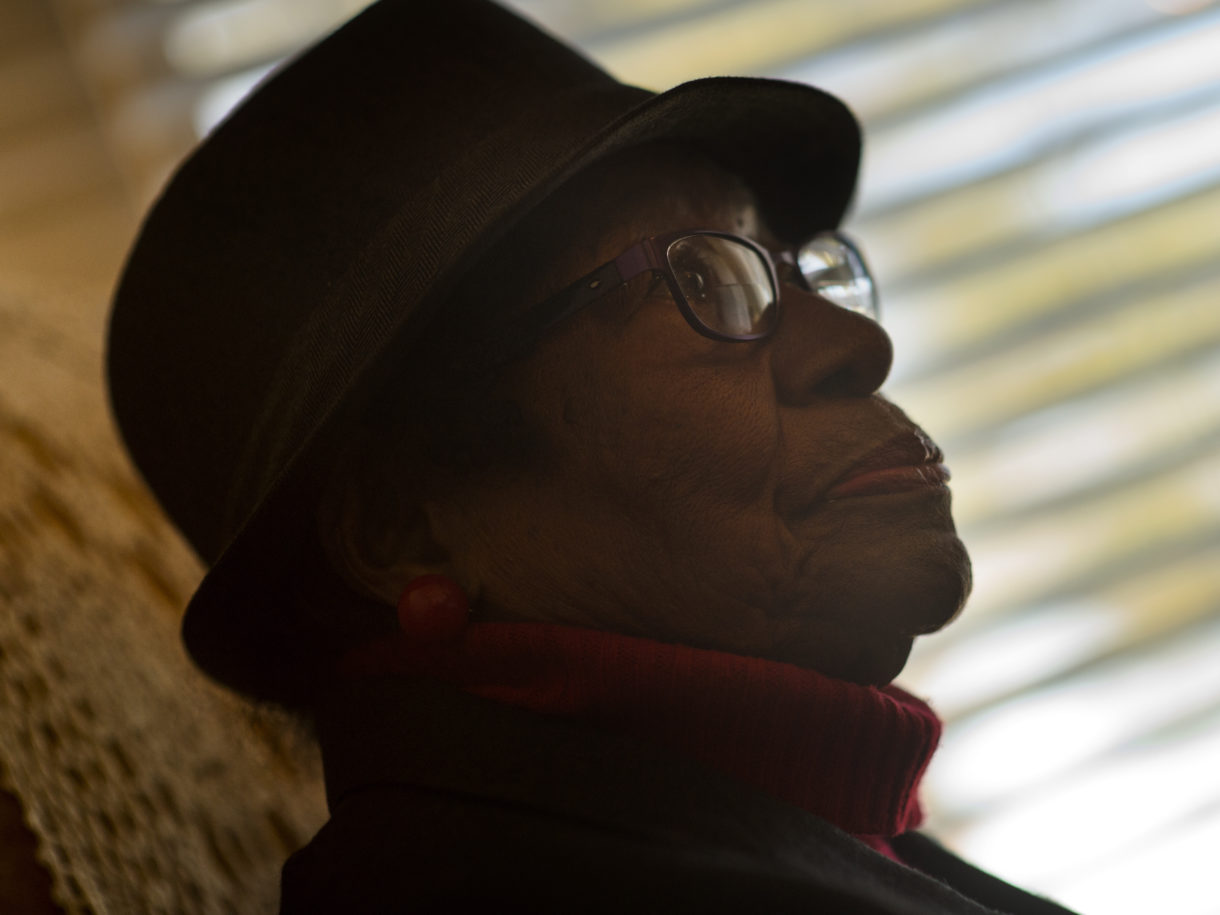When the Supreme Court shot down a key provision of the landmark Voting Rights Act — which required that certain places with a history of discriminating against voters get federal approval before making new changes to their voting laws — lawmakers in North Carolina wasted little time in passing sweeping new rules around voting. The state issued requirements for specific kinds of photo identification, cut back on early voting and preregistration.
Supporters of the new laws, who were overwhelmingly Republican, insisted that the measures were necessary to prevent voting fraud. But voting rights experts and advocates said that voter fraud was extremely rare and that the rules would make it much harder for younger voters, poorer voters, and black people — groups that were more likely to vote for Democrats and less likely to have official identification — to cast their ballots.
To Rosanell Eaton, the restrictive new laws seemed familiar. Eaton was the granddaughter of enslaved people who grew up under Jim Crow in Louisburg, N.C., and had been fighting against rules meant to keep black people from voting for nearly as long as she was legally eligible to cast a ballot. In the early 1940s, after she turned the legal voting age, Eaton traveled by mule wagon to register to vote at the Franklin County courthouse. But she found herself before three white men, who confronted her and tried to stop her. They demanded that she recite the Preamble to the Constitution of the United States — a common “literacy test” used to discourage and block and turn away black people from voting voters.
Eaton, unshaken, recited the entire thing. The men conceded and allowed her to register, making Eaton one of the first black voters in North Carolina since Reconstruction.
Eaton, who died on Saturday at the age of 97, was a well-known advocate for voting rights among Carolinians — she was a member of the NAACP, a county poll worker and a special registrar commissioner, helping thousands of people register to vote — but it wasn’t until she became the face of the lawsuit against the voting rules that North Carolina adopted in 2013 that she gained national prominence. Eaton, then 92, used her biography to place her state’s new rules into a larger history of disenfranchisement. “We have been this way before, but now we have been turned back and it’s a shame and a disgrace, and absolutely disgusting,” she said to a crowd at voting rights rally.
“She would often tell us the story that the reason she had to fight now, because she had to fight then,” the Rev. William Barber told NPR’s Audie Cornish. It was Barber who asked Eaton and her daughter, Armenta, to join the lawsuit against the state as its lead plaintiffs. Eaton traveled, gave speeches and marched — with her walker — to have North Carolina’s laws changed.
“I went up to her [during a rally] and said, Miss Rosanell, you don’t have to do this,” Barber said.
“‘I know what I’m doing,'” Barber said she told him. “You don’t have to tell me what I don’t have to do. I do have to do this.”
Under the state’s new voter I.D. rules, Eaton was likely to have been among those who would have difficulties casting a ballot. She had the necessary documents — a birth certificate, drivers’ license and voter registration card — but her name varied on each, making it likely that her contradictory documentation would have been honored. Eaton and her daughter would testify over and over in the case during the next three years.
In 2016, a federal court found that North Carolina lawmakers had specifically asked about racial differences in voting behavior as they were crafting the new rules, and said that the measures amounted to an unconstitutional “target on African-Americans with almost surgical precision.” The judges said the “legislature crafted the bill to exclude many of the alternative photo IDs used by African Americans” and that the bill “retained only the kinds of IDs that white North Carolinians were more likely to possess.”
The court struck down much of the law and sided with the plaintiffs. A later effort by North Carolina to revive the case was refused by the Supreme Court in 2017.
Laws like the one Eaton fought against were a central issue in November’s midterm elections. Georgia’s “exact match” voter ID law left about 53,000 voter registration applications in limbo, the vast majority of those application belonged to black voters, a AP analysis found. In North Dakota, a voter ID law required a residential address on the document, making it more difficult for Native Americans, who do not have fixed street addresses on the reservations there, to cast their ballot. And in Texas, student IDs do not serve as identification, a policy that discourages younger voters. In total, 34 states have laws that require voters to show some sort of identification. Seven of those states have what the National Conference of State Legislatures refers to as “strict photo ID” laws, similar to those Eaton challenged.
“She taught us that you can’t just get fed up with what’s going on in a democracy, that you just to work for it. It’s hard. And when things are going wrong, it should fire you up. It should make you more willing to engage, ” Barber said.
In a 2015 op-ed in the New York Times, President Obama cited Eaton’s story and praised her. “I am where I am today only because men and women like Rosanell Eaton refused to accept anything less than a full measure of equality,” he wrote. In 2016, he invited her to visit him in the White House. But Eaton’s daughter told the Charlotte Observer that her mother only agreed to go after she found out the visit wouldn’t conflict with an upcoming primary election.
9(MDEwNzczMDA2MDEzNTg3ODA1MTAzZjYxNg004))
